Search Results
Showing results 1 to 20 of 25
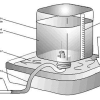
Catch Your Breath: Build a Spirometer and Measure your Lung Capacity
Source Institutions
In this activity, learners will measure their lung capacity by making their own spirometer. Learners will then explore factors that affect the amount of air the lungs can hold.

I Can't Take the Pressure!
Learners develop an understanding of air pressure in two different activities.

What Color is Your Air Today?
Learners develop awareness and understanding of the daily air quality using the Air Quality Index (AQI) listed in the newspaper or online.

Hot Air
Source Institutions
In this activity, learners set up an experiment to investigate the effects of hot air on the path of a laser beam.

Heat Capacity: Can't Take the Heat?
Source Institutions
Why is ocean water sometimes the warmest when the average daily air temperature starts to drop? In this activity, learners explore the differing heat capacities of water and air using real data.
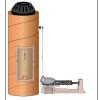
Rocket Wind Tunnel
Source Institutions
In this activity, learners evaluate the potential performance of air rockets placed inside a wind tunnel.

Charge Challenge
Source Institutions
In this activity, learners explore how objects can have positive, negative, or neutral charges, which attract, repel and move between objects.
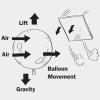
Sky Floater Challenge
Source Institutions
In this design challenge activity, learners make a balloon hover at eye level for five seconds, and then make it move by creating air currents.
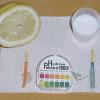
Acid (and Base) Rainbows
Learners use red cabbage juice and pH indicator paper to test the acidity and basicity of household materials. The activity links this concept of acids and bases to acid rain and other pollutants.

Paper Drop Design Competition
Source Institutions
Using paper, paper clips, an index card, and tape, teams of learners design flying devices to (1) stay in the air as long as possible and (2) land as close as possible to a given target.
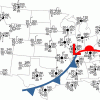
Drawing Conclusions
Source Institutions
In this weather forecasting activity, learners determine the location of cold and warm fronts on weather plot maps.
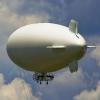
Sky Glider Challenge
Source Institutions
In this design challenge activity, learners use two helium-filled balloons to build a blimp that can travel in a straight path across the room.
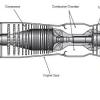
Jet Propulsion
Source Institutions
In this two-part activity, learners work in pairs to examine the four basic stages of a turbine engine.
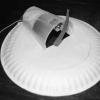
Hovercraft
Source Institutions
In this activity, learners build a hovercraft using a paper plate, cup, and simple motor.
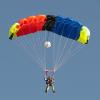
Design a Parachute
Source Institutions
After a discussion about what a parachute is and how it works, learners create parachutes using different materials that they think will work best.
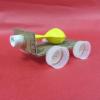
Balloon Car
Source Institutions
In this activity, learners explore force and motion by constructing cardboard cars that are propelled by balloons.
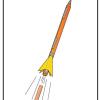
3...2...1 Puff!
Source Institutions
In this activity, learners build small indoor paper rockets, determine their flight stability, and launch them by blowing air through a drinking straw.
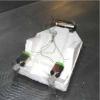
Airboat
Source Institutions
In this activity related to Newton's Laws of Motion, learners build a boat powered by a propeller in the air.
Fossil Fuels: Facing the Issues
Source Institutions
Through doing these hands-on activities, learners explore the environmental consequences associated with fossil fuel usage.
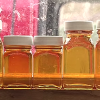
Delicious Smelling Chemistry
Source Institutions
In this activity, learners use household materials to investigate and explore their ability to smell an odor.
